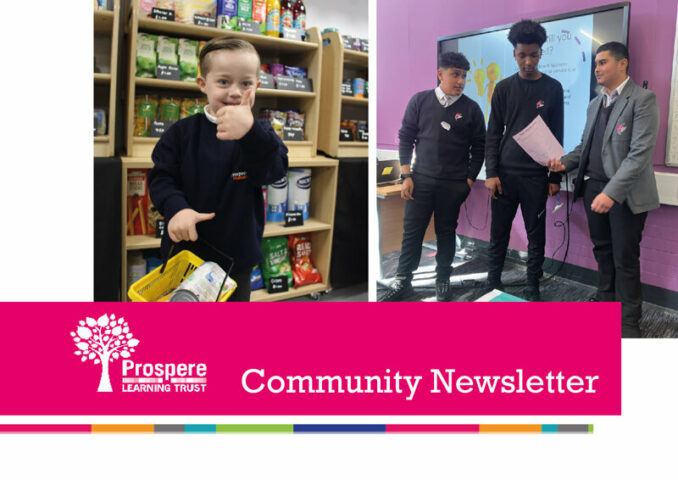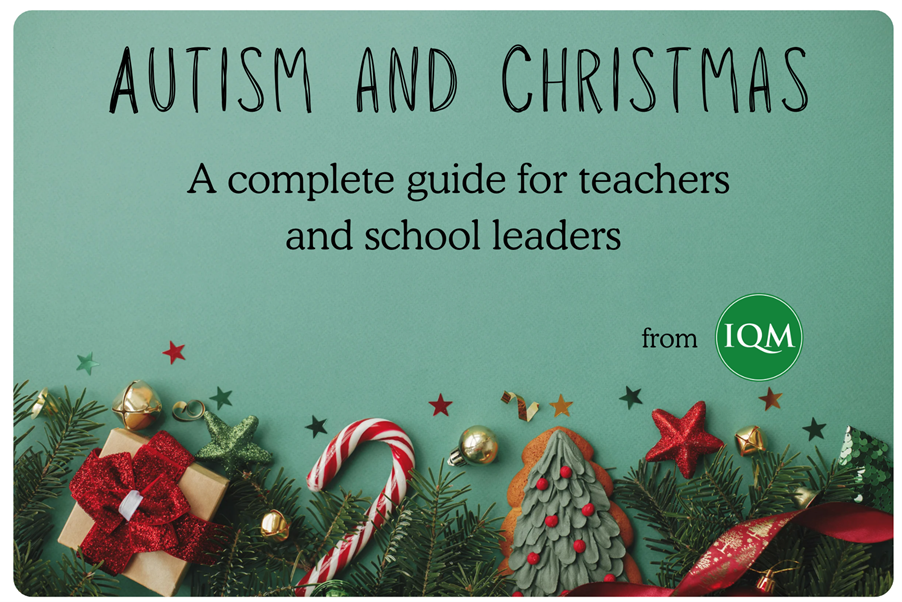Who is IQM?
IQM is the only national inclusion award in the UK. For over 20 years and in over 20 countries, schools, MATs and Local Authorities use the Inclusion Quality Mark to recognise exemplary inclusive practice.
Get in touch for your FREE school information pack today.
Grange School Achieves Centre of Excellence
November 2, 2023
Grange School has achieved has achieved the Inclusive School Award with Centre of Excellence status.

Built a Supportive Community
The preparation Grange School had made for their IQM Inclusive School Award visit, was deeply thorough, across their whole assessment document and gave a full picture and understanding of the context needed to assess accurately. The school is located in Gorton, Manchester with the school’s pupil cohort being city wide and beyond: with pupils attending from all areas of Greater Manchester. They have built a supportive community across Greater Manchester and beyond. The school cohort is aged between 4-19 and all pupils at Grange School have an EHCP (Education Health and Care Plan), with a diagnosis of autism. Gorton is an area of high deprivation and falls in the bottom 7% of areas for crime and 5% for living environment and quality of life. This is important to note when evaluating the inclusiveness and work-based focus of the curriculum.
The school currently has 238 students on roll, of which over half are eligible for free school meals and are eligible for Pupil Premium funding. The journey of the school and evidence seen during this assessment included the school’s most recent self assessment form, which has seen an update of their own judgment to ‘Outstanding’, backed up by large quantities of Quality Assurance feedback.
Steps Made to Secure Inclusion

The IQM lead was able to explain the steps made to ensure inclusion is at the forefront of the thinking of Leaders with examples of work towards the recent Autism Accreditation Award by the National Autistic Society and they have recently been awarded a Commendation of Practice. The ethos of the school, within the context mentioned above, is to offer a range of nationally recognised and accredited qualifications from pre-entry level up to Level 2. There is clearly a keen focus on preparation for employment and adulthood. This is delivered through a variety of in–school enterprises and a qualification in Independent Living.
The day contained evidence of this throughout Grange School’s assessment including a wide range of enrichment opportunities for pupils (Imagination Village, Know Globes, Sensory Shack, Regulation Station, Grow Zone, Fantasy Forest, Life Skills Flat, Buddy Barn Farm, Brewhog Coffee Shop). All of these show creativity and deep knowledge of the school cohort. These are not ‘role plays’ but very clear steps on the road to successful lives. It really needs to be seen to be believed. In fact, it is hard to describe without wrestling with what makes this unlike similar provisions. Our Assessor indicated the key is the graded approach and realism of these areas, so the learners know exactly what to be prepared for in the real world. So difficult to achieve, but they’ve done it!
Learning Pathways
The first meeting with the IQM Lead was a fantastic overview of the systems and processes that allow the curriculum to be clear for everyone from parents, outside assessment and children, as well as staff. The four clear learning pathways were exactly that and exciting to look at – a great balance. There was also an explanation about the school’s cultural understanding and how the school builds trust with understanding of each learner and their individuality.
Parents spoke of experiences in other settings and how they had enhanced clarity now about exactly how their child was being supported, the learning they were doing and why they were on their certain pathway. Their level of understanding of the school and detailed explanation related to this is a testament to the communication between school and home.
Parents who were new to the school talked about how Grange changes the perception of school to the child and the family, how their children settle in straight away and are safe and happy. They see the context of learning and see the approaches of the school as ‘life-changing’. They explained about the positive nature of the staff, the time given to build trust and the space given to their child to develop. They love the learning trails they are invited on to experience what their children get to experience first-hand. They detailed the high level of support, the intrinsic understanding of autism that staff have, the open–door approach and how communication is key to their feeling of belonging.
Experience and Passion

Governors have a great deal of experience and passion for their roles. They have a passion for professional development of staff and see this as a way of ‘growing their own’ staff and holding on to skilled members of staff that they have had a vital role in cultivating. They are pleased with the clarity of reporting within the Trust and from senior leaders and know exactly the investment and realism needed to maximise resourcing.
The Chair of Governors and all members of the Governance team talked about the steps being made to ensure professional development for Teaching Assistants and to help them have a clear view of progression within their vital role. They are proud of the journey the school has been on and especially to see the school now in a position to help other schools within the Trust and beyond. They talked with love about the lively, encouraging space the school is and how the school and their work within it leaves them uplifted and engaged. They are interested in staff and strive to ensure they can help them and are always looking at ways to further that interest in wellbeing. They are, as they said, a ‘critical friend’ with an emphasis on both words!
The learning walk was awe-inspiring, with areas such as the ‘Imagination Village’ such as an amazing entryway into challenging and difficult real life situations at an ‘entry level’ that progress made in the Doctor’s Surgery with their parents can surely be traced back into the reality based surgery in the ‘Imagination Village’. The resourcing of this is clearly allocated to people with interests and skillsets that match the role and workload is not an issue when clarity of role, such as this is evident.
Areas have purpose within life and within the curriculum, with areas such as ‘The Regulation Station’ being used for individual objectives and in partnership with other professionals. The ‘Know Globes’ as another example, feels like a day’s school trip in itself! The excitement and engagement are a testament to the creative, imagination, hard work and time put in by all involved staff, including the dedicated site manager in setting them initially. Areas such as the ‘Brew Hog’ Cafe are a buzz of work and are a real place of work as well as learning. These are jobs to interview for, earn and work hard at – as well as being bespoke to the learner’s interest. During the learning walk it was evident that these are life-skills that last!
Leading Light
Staff understand the need to record work and data as evidence and also to show progression. There is no wasted motion within books, curriculum documents and reporting tools with engaging expertly branded documents written to the level of whomever needs to read them and understand them. Teaching Assistants take responsibility within the team to support marking and the learning three point carousel means that the team has to communicate well to be successful. The school shares their curriculum across the Trust and has been a leading light when bringing creative and clear curriculum ideas to life.
Senior Leaders explained their systems that they have at Grange School where they assess pupil attainment through Classroom Monitor (a tracking and targeting system), with pupils working on individualised targets. Expected progress levels are then formulated based on the pupil’s academic ability and age to ensure pupils are making as much progress as they can. Pupils also work towards skills targets, which focus on extra-curricular activities and life skills. Pupils have a vast range of opportunities within school to grow and develop on a personal level as well as academically. This balance was evident and vital to the full understanding of the school’s inclusivity.
Pupils constantly work hard to be leaders and the Pupil Leadership Team was commendable. They spoke of promoting the buying of new gym equipment, leading an election to acquire new animals to learn about and care for. They talk about being free to dance and sing and love the physical activities lined up for them. They explained how they ‘improve the school’ and ‘make a better school’ as well as having ‘lots of ideas’. These children were confident, respectful and kind – a perfect reflection of their school role models.
Teachers Listened To 
Teachers who were interviewed were keen to explain they were listened to, that ideas are welcomed by leaders and feel backed if they ask with a clear evidence base. They are aware of the signposting for support and also support one and other. They are able to make suggestions related to workload and this is acted on and supported, but they are motivated and clear that each process they are expected to follow makes clear sense and benefits the learners. They are a perfect example of how the children are learning about ‘life’ not just ‘life skills’ in isolation. Newer staff have been encouraged to be subject leads and share with senior leaders a desire to become experts in their subjects. They are given support and time to do this.
Teaching Assistants take on roles where they are now very clear on their standards and choices in relation to progression within their roles. They are involved in target setting and can achieve career goals within the setting of the school. They also feel they have ideas that they can share and that are acted on and many of these professionals perform above and beyond their initial roles, due to high levels of motivation and confidence as well as support. They made it clear this would not always be the case unless they felt valued and highly regarded.
Some staff start on a supply basis and are motivated to stay and thrive within the school. They are motivated by the trust placed in them by leaders and also by the children’s response to the work they do. They ‘love their job’ what a wonderful quote to record! The also mentioned how new staff are included, the team recognises each other and their skills and are also able to help ease pressures when challenges occur.
Grange School is a school with a recent history of developing staff into leadership roles, that has been created by a range of factors: through the support of the Trust executive team, input and support across the Trust and how leaders draw on differing experiences around them.
There is a template within the Trust but the Headteacher and her team have developed, executed and built in opportunities for all staff to implement exciting ideas. There is a culture of positive challenge. They understand the link between workload and wellbeing and listen to staff at key times, acting on suggestions whilst being mindful of the standards expected. The ownership of subject areas builds confidence, expert teachers and leadership succession planning. The staff career paths, mirror the children’s as real, achievable and challenging.
Find out more about the IQM Inclusive School Award
If your school is interested in obtaining the IQM Inclusive School Award or you wish to talk to a member of the IQM team please telephone:
028 7127 7857 (9.00 am to 5.00 pm)
or email: admin@iqmaward.com for further details.
Want more information on the IQM Award? Click here to request your free IQM information pack.
• Our inaugural National Inclusion Conference will take place on the 27th November, for further details click here.
Other Posts

About IQM
The only national award for inclusion in the UK, IQM has been committed to recognising exemplary inclusive schools for over 20 years and in over 20 countries around the world. The three awards allow schools and organisations to celebrate their inclusive practice against nationally recognised framework.
Site Links
© 2026 Inclusion Quality Mark | website developed & cared for by digidoda


